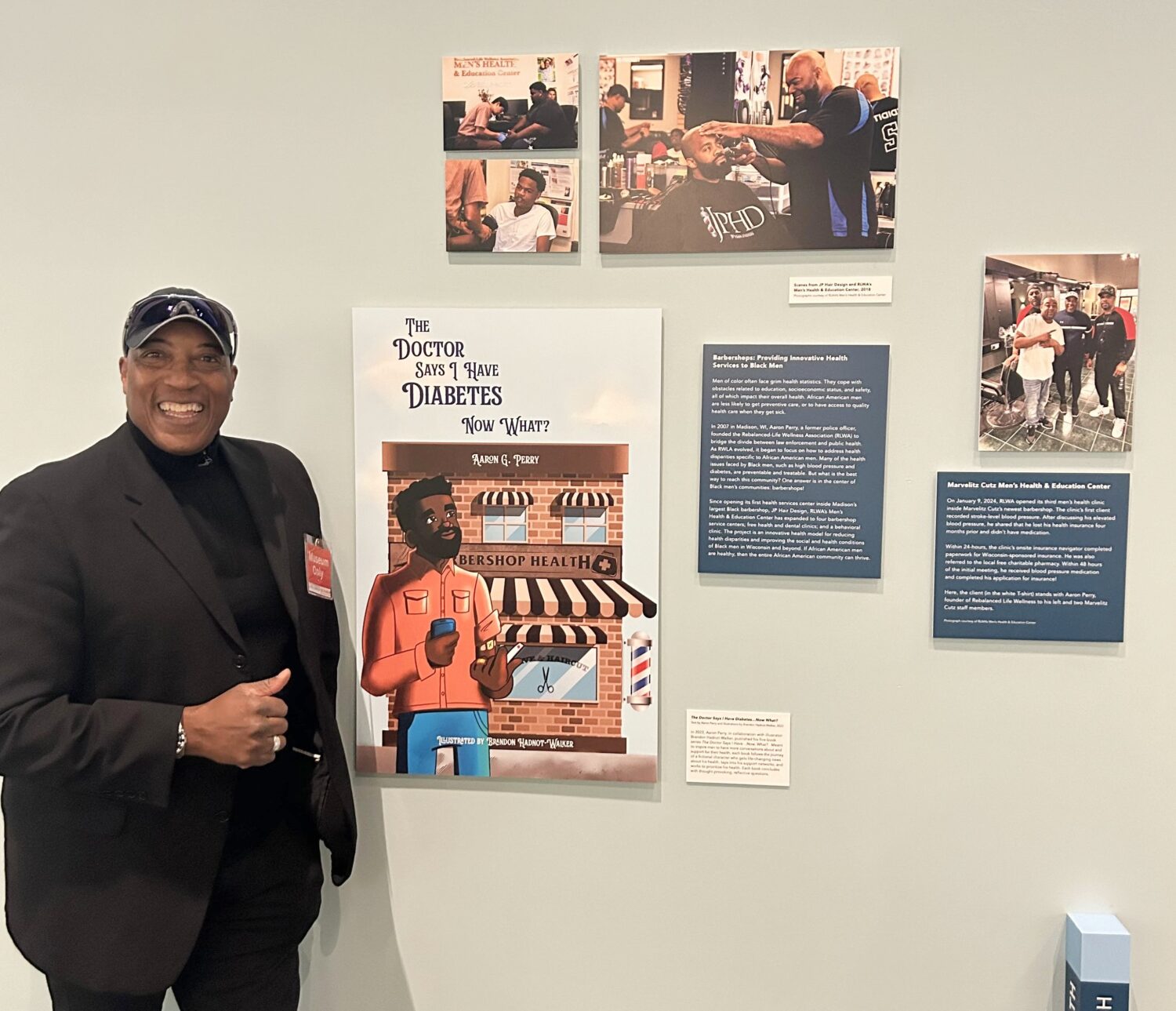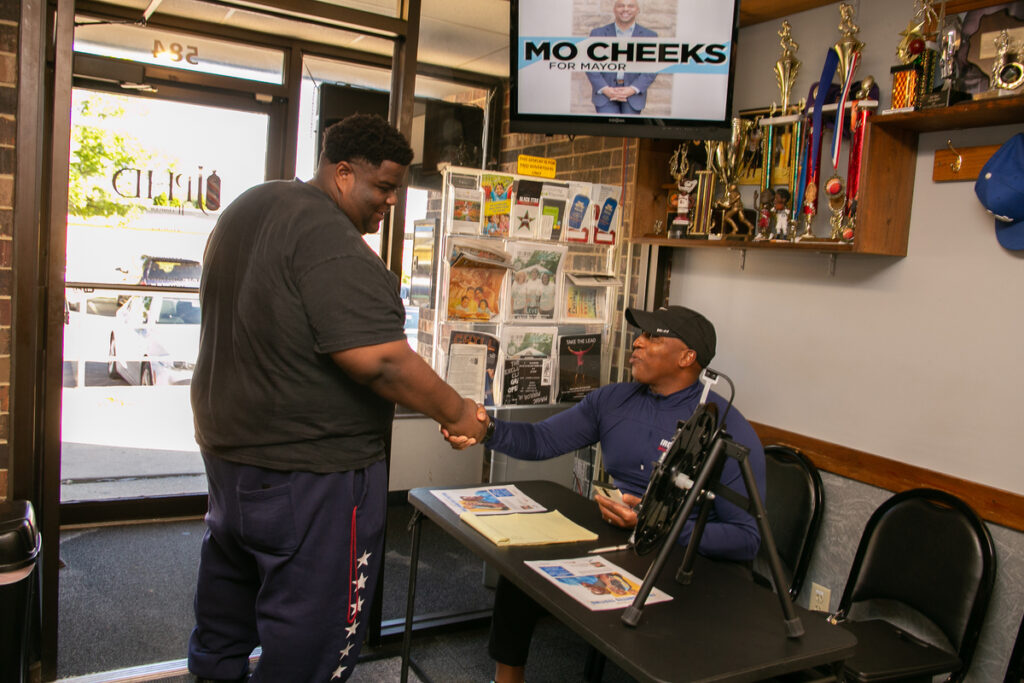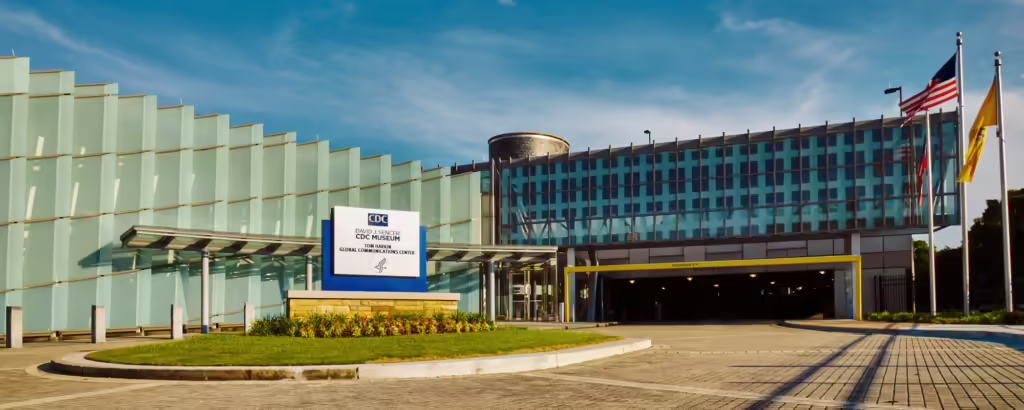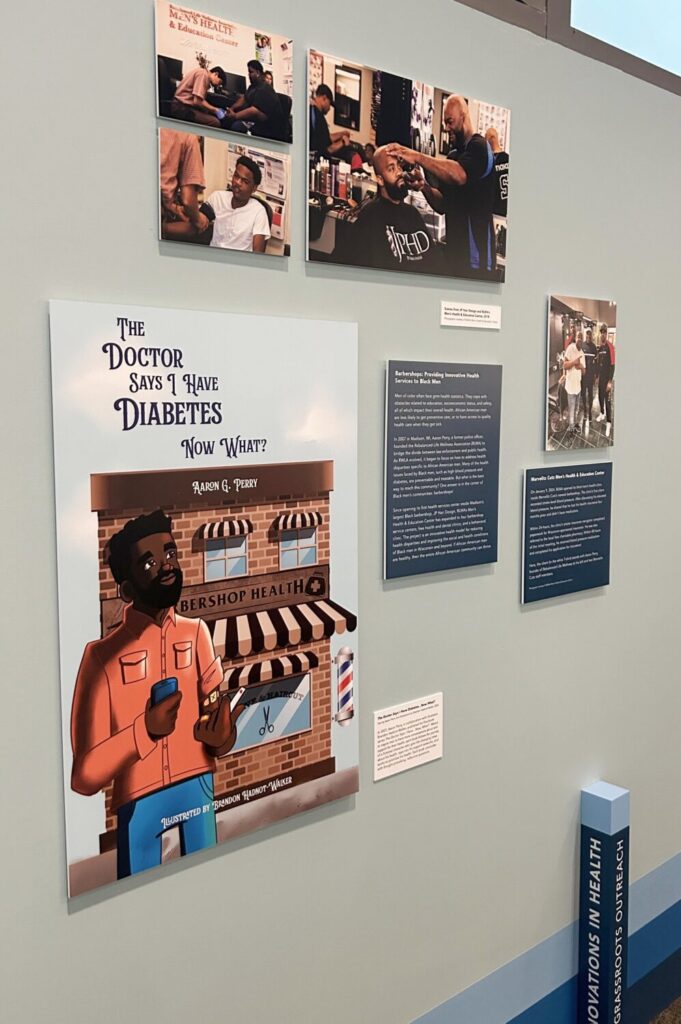
Rebalanced-Life Wellness Association, an innovative Madison-area non-profit organization that works in a variety of ways to ensure that Black men and boys living in underrepresented communities have the opportunity to live healthier lives, was recently selected for inclusion into the David J. Sencer CDC Museum exhibit in Atlanta, Ga., and its founder/CEO, Aaron Perry, could not be more excited.
“It’s pretty sweet to be recognized in this way,” Perry tells Madison365. “I really feel that with the inclusion at this CDC Museum, I’ve reached the mountain top of my career, that’s for sure.”
The David J. Sencer CDC Museum, a Smithsonian affiliate, uses award-winning exhibits and innovative programming to educate visitors about the value of public health, and presents the rich heritage and vast accomplishments of CDC. The museum hosts more than 100,000 visitors each year and provides popular educational programs for students and teachers.
Perry has overseen his Rebalanced-Life Wellness Association’s Men’s Health & Education Center expanding to four barbershop service centers since opening its first health services center inside JP Hair Design, Madison’s largest Black barbershop. They also provide free health and dental clinics and a behavioral clinic. It’s all part of an innovative health model for reducing health disparities and improving the social and health conditions of Black men in Wisconsin and beyond.

(Photo: Aaron Perry)
The Rebalanced-Life Wellness Association is one of many organizations featured in the David J. Sencer CDC Museum’s current ‘Health is a Human Right: Achieving Health Equity Exhibit.”
“The exhibition acknowledges that the only way everyone will have a fair opportunity to achieve their best health is to acknowledge the harms of the past while also looking ahead to what is possible,” the David J. Sencer CDC Museum says on its webpage describing the new exhibit. “We look at models of “communities of practice”—how individuals, nonprofits, and local, state, tribal, and federal governments are reframing both problems and solutions to make sustainable differences.”

The CDC curator selected the Rebalanced-Life Wellness Association to be part of the exhibit because they are a “a shining example that the only way everyone will have a fair opportunity to achieve their best health is to acknowledge the harms of the past while also looking ahead to what is possible.”
“The CDC was looking for organizations around the world that they saw as really looking at the common man and the common woman. In other words, looking at the human being. Health is a human right, and that was why they coined the phrase for the exhibit,” Perry remembers. “And so in the course of just looking at organizations and what they were doing worldwide, the curator stumbled across my website, and decided to reach out saying, ‘Hey, I’d like to have a conversation with you.'”
The curator and Perry ended up having a great conversation.
“I talked about the fact that all of my videos clearly state that everyone is entitled to health care regardless of their ability to pay,” Perry remembers. “I kept saying that throughout all of my interviews and that jumped out at the curator, and she made the decision to include our organization in the exhibit ‘Health is a Human Right: Achieving Health Equity Exhibit.'”
Perry and his staff made their way down to Atlanta in late November to see the opening of the exhibit.

“On Monday morning, when the exhibit opened, we were there to open the exhibit. And it was pretty amazing to see,” Perry says. “I ended up running into this group of young African American researchers and physicians, and they were looking at my exhibit. It was kind of neat to be able to see them looking at my exhibit and taking notes.
“We have been a beacon for the community in opening up our free micro clinics in barber shops, and that has been something that continues to resonate, particularly with the health care industry, which is a $5 trillion industry,” Perry continues. “They’re building and building more hospitals … the issue is that it’s still not reducing the disparities for Black men. And so folks are now looking at bypassing the hospitals as being the place to reach Black men and now they’re starting to look at the model that I created as a strong possibility to incorporate in their communities.”
The exhibit highlights a lot of the work that Perry has been doing to reduce the disparities in Black men’s health. On top of the health services centers, Perry launched a book tour last fall throughout the United States with the goal of visiting 250 Black barbershops nationwide and impacting 30,000 Black men across America.
“Since the exhibit opened, I have had people from people from Brazil and folks from Haiti who have reached out and are interested in learning more about what we’re doing. I also had some people from Miami reach out, and they’re very interested in what we’re doing, as well,” Perry says. “And so I think across the board, people are realizing that you can build more hospitals and clinics, because they’re needed, but there is room for another idea. There’s room for another concept. And I think for Black men, people are navigating to the model that we have created.”
Aaron Perry remembers when he was 11 years old and one of the first reports he ever did for school was on the Centers for Disease Control (CDC).
“All of the kids in my neighborhood called me a geek,” Perry smiles. “So I remember feeling like maybe a little shame… I didn’t think I was smart. I was just a very curious kid. The CDC and how health works and how equity works … that was appealing to me as a kid, but I didn’t realize what it was until I got older. So as an 11-year-old kid, I did this report, and 50 years later, my innovation is now at the CDC museum. It’s amazing to see it come full circle.”
“The Health is a Human Right: Achieving Health Equity” exhibit opened on Monday Nov. 25 and runs through Aug. 1, 2025. The CDC Museum is located in Atlanta, GA, and they offer an online exhibit that you can see here.



